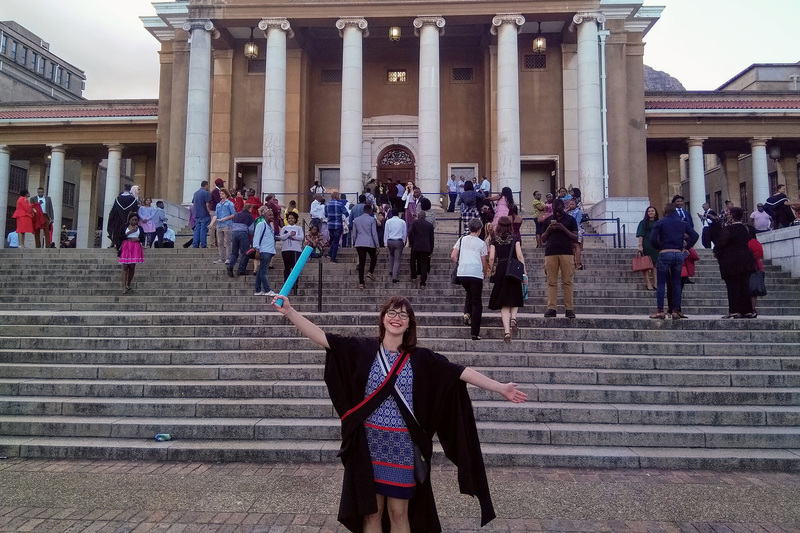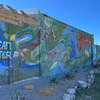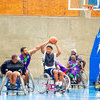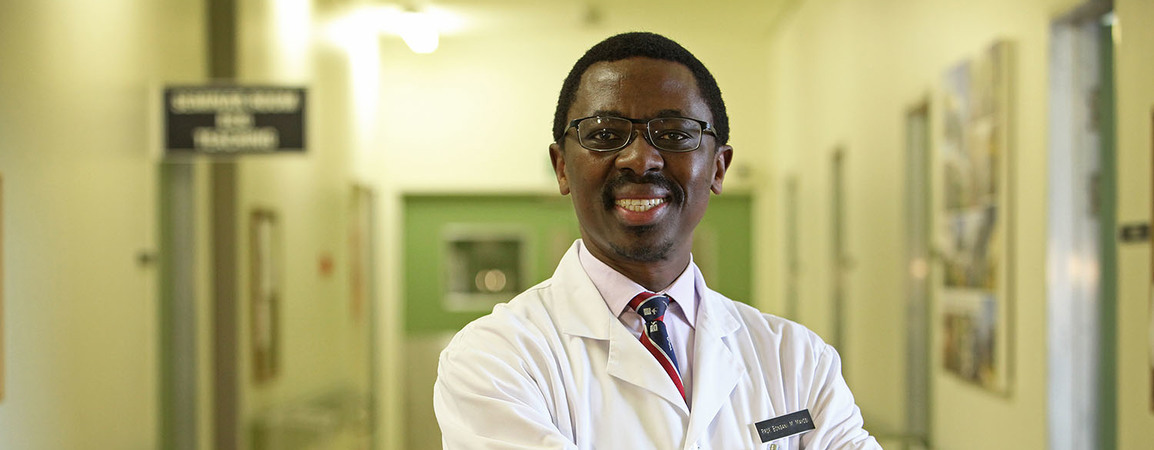Dual degree was ‘a juggling act’
13 February 2019 | Story Niémah Davids. Photo Supplied. Read time 7 min.
For 25-year-old Kira Düsterwald, when it dawned on her in matric that unlike science, medicine was very interdisciplinary, the latter became her career choice. The fact that medicine relies on social, scientific and psychological domains to solve a host of the world’s most pressing challenges intrigued her.
So despite her love for mathematics – she represented South Africa in the International Mathematical Olympiad in high school – medicine won out.
Little did she know then, however, that she would soon be able to combine the two.
Düsterwald embarked on her journey to study medicine at the University of Cape Town’s (UCT) Faculty of Health Sciences. There, she got a lot more than she bargained for.
Fast-forward just seven years after registering as a fresher med student, and Düsterwald and fellow UCT graduate Nicola Steinhaus have both achieved something extraordinary.
In 2018 the pair graduated with their intercalated MBChB degrees in medicine with first-class honours, as well as a masterʼs in neuroscience for Düsterwald, and masterʼs in public health for Steinhaus, both with distinction.
Düsterwald and Steinhaus were both part of UCT’s Clinical Scholars Programme, established in 2011 by the late former dean of the Faculty of Health Sciences Professor Bongani Mayosi, and the Institute of Infectious Disease and Molecular Medicine’s Professor Arieh Katz. The programme seeks to train and inspire a new generation of clinical researchers, boosting South Africa’s overall pool.
“In many ways the Clinical Scholars Programme was a relief for me. In my first year I already knew I wanted to be part of the cohort. In my mind it gave me the opportunity to do a bit of medicine, which I loved, while also exploring the field of science and keeping my mathematics interests going,” Düsterwald said.
“In many ways the Clinical Scholars Programme was a relief for me. In my first year I already knew I wanted to be part of the cohort.”
Academic journey with a difference
To this end, she enrolled in additional mathematics and statistics credit classes in her first year. By 2015 she had completed the equivalent of a pure mathematics undergraduate major, while continuing with her medical degree. She then turned her attention to medical research, incorporating mathematics as often as possible.
In her fourth year she took time out from pursuing her medical degree to complete her honours in neuroscience. During that time she explored the field of computational neuroscience, which finally enabled her to combine mathematics and medicine.
“All credit goes to my supervisor Dr Joseph Raimondo for his ability to impart the excitement of the field and the lab environment, and not forgetting his attentive supervision. I was hooked and encouraged to pursue my MSc,” she said.
Following her honours, Düsterwald returned to her clinical studies, but continued her research in her free time. With Raimondo’s encouragement to chase her MSc in 2016, she persevered. That same year she was awarded a Mandela Rhodes Foundation Scholarship, which allowed her to complete her masterʼs degree. It also exposed her to the leadership development she says she needed to shape her future career plans.
In April 2017 the possibility of graduating with both her MBChB and her MSc was fast becoming a reality, and she completed enough material to “push through” and submit her masterʼs.
“The two degrees had been so intricately linked; I often had to sacrifice time on one for the other. Although the two worlds can feel far apart, one of the ways I could show that I was a clinician and a scientist was by being awarded both degrees with their respective highest honours at the same time,” she said.
A juggling act
The blessing, or the curse, of juggling a science and a medical degree and feeling like an “imposter” in both streams was one of Düsterwald’s biggest challenges. But, she said, eventually it all came together – those feelings didn’t last forever.
Proper time management and “working smart” to fit in the stringent requirements that came with both degrees was challenging too.
“There were multiple times when I had to move courses or exams and convince the convenors that I could handle the extra load. I always used my prior success as proof that I would be able to cope,” she said.
Medicine was always her main focus and skipping clinical duties or activities was never an option. She also maintained an active role in the Studentsʼ Health and Welfare Centres Organisation (SHAWCO) student-run clinics regardless of her dual-degree demands. Even though it sometimes felt like she wasn’t representing both fields of study sufficiently, she didn't let that stop her.
“All it takes is diligence, open-mindedness and hard work, and slowly it all comes together,” she said.
“All it takes is diligence, open-mindedness and hard work, and slowly it all comes together.”
Thumbs-up for Clinical Scholars Programme
Düsterwald credits the programme for playing an integral role in her personal and professional development, and described working and learning from academics such as Mayosi and a host of others as a “definite highlight”.
She believes its value is two-fold. It’s become incredibly important for students to gain experience in the mechanics of research, she said, and at the same time to understand basic molecular work. On the other hand, the additional course offered in the students’ third year, and presented in smaller classes, gives them an opportunity to learn from fields closely allied to clinical medicine. The programme addresses both needs.
To practice and solidify the skills she was taught in medical school, she is completing her medical internship at the Livingstone, Dora Nginza and Provincial hospitals in Port Elizabeth. There she works as a medical doctor and is responsible for consulting with patients and carrying out procedures.
“Working as a doctor in a new province is starkly different from being a student. As a student, every decision you make needs to be vetted by a senior qualified doctor. But being a new doctor, I have to do things on my own. I really enjoy making good, independent clinical decisions,” she said.
Düsterwald has a few other career plans up her sleeve, including a long-term goal of becoming a clinician-scientist, with one foot in the lab and the other in the clinic.
But for now she is focused on completing her internship and community service. Thereafter, a PhD might be on the cards.
 This work is licensed under a Creative Commons Attribution-NoDerivatives 4.0 International License.
This work is licensed under a Creative Commons Attribution-NoDerivatives 4.0 International License.
Please view the republishing articles page for more information.
Bongani Mayosi
1967–2018
The University of Cape Town mourns the passing of Professor Bongani Mayosi, Dean of the Faculty of Health Sciences, who left us on the morning of Friday, 27 July. While this is a very difficult time for both students and staff, particularly those in the Faculty of Health Sciences, it is also a time to reflect on and celebrate the incredible life of one of the university’s finest academics and researchers.
Read #RememberingMayosi messages that have been received from the community so far.
Read letters of condolence.



Announcements
Letters of condolence
#RememberingMayosi




Speeches
Related articles
























